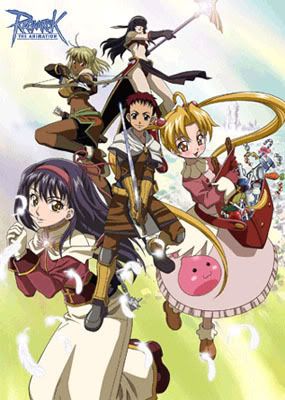


In Norse mythology, Ragnarök (IPA: /ragnarɔk/, Old Norse "Final destiny of the gods"[2]) refers to a series of major events, including a great battle foretold to ultimately result in the death of a number of major figures (including the gods Odin, Thor, Freyr, Heimdall, and the jötunn Loki), the occurrence of various natural disasters, and the subsequent submersion of the world in water. Afterward, the world resurfaces anew and fertile, the surviving gods meet, and the world is repopulated by two human survivors. Ragnarök is an important event in the Norse canon, and has been the subject of scholarly discourse and theory.
The event is attested primarily in the Poetic Edda, compiled in the 13th century from earlier traditional sources, and the Prose Edda, written in the 13th century by Snorri Sturluson. In the Prose Edda, and a single poem in the Poetic Edda, the event is referred to as Ragnarökr or Ragnarökkr (Old Norse "Twilight of the Gods"[3]), a usage popularized by 19th century composer Richard Wagner with the title of the last of his Der Ring des Nibelungen operas; Götterdämmerung.[4]
The Old Norse word "ragnarök" is a compound of two words. The first part is ragna, which is the genitive plural of regin ("gods" or "ruling powers"), from the reconstructed Proto-Germanic term *ragenō. The second part is rök, which has several meanings, such as "development, origin, cause, relation, fate, end". The traditional interpretation is that prior to the merging of /ǫ/ and /ø/ (ca. 1200) the word was rǫk, derived from Proto-Germanic *rakō.[5] The word ragnarök as a whole is then usually interpreted as something like "final destiny of the gods."[2] In 2007, Haraldur Bernharðsson demonstrated that the original form of the second word in the compound is røk, leading to a Proto-Germanic reconstruction of *rekwa and opening up other semantic possibilities.[6]
In stanza 39 of the Poetic Edda poem Lokasenna, and in Snorri's Prose Edda, the form ragnarök(k)r appears, rök(k)r meaning "twilight". It has often been suggested that this indicates a misunderstanding or a learned reinterpretation of the original form ragnarök.[5] Haraldur Bernharðsson argues instead that the words ragnarök and ragnarökkr are closely related, etymologically and semantically, and suggests a meaning of "renewal of the divine powers".[7]
Other terms used to refer to the events surrounding Ragnarök in the Poetic Edda include aldar rök ("end of the world") from stanza 39 of Vafþrúðnismál, tíva rök from stanzas 38 and 42 of Vafþrúðnismál, þá er regin deyja ("when the gods die") from Vafþrúðnismál stanza 47, unz um rjúfask regin ("when the gods will be destroyed") from Vafþrúðnismál stanza 52, Lokasenna stanza 41, and Sigrdrífumál stanza 19, aldar rof ("destruction of the world") from Helgakviða Hundingsbana II stanza 41, regin þrjóta ("end of the gods") from Hyndluljóð stanza 42, and, in the Prose Edda, þá er Muspellz-synir herja ("when the sons of Muspell move into battle") can be found in chapters 18 and 36 of Gylfaginning.[Source : http://en.wikipedia.org/wiki/Ragnar%C3%B6k
Tidak ada komentar:
Posting Komentar